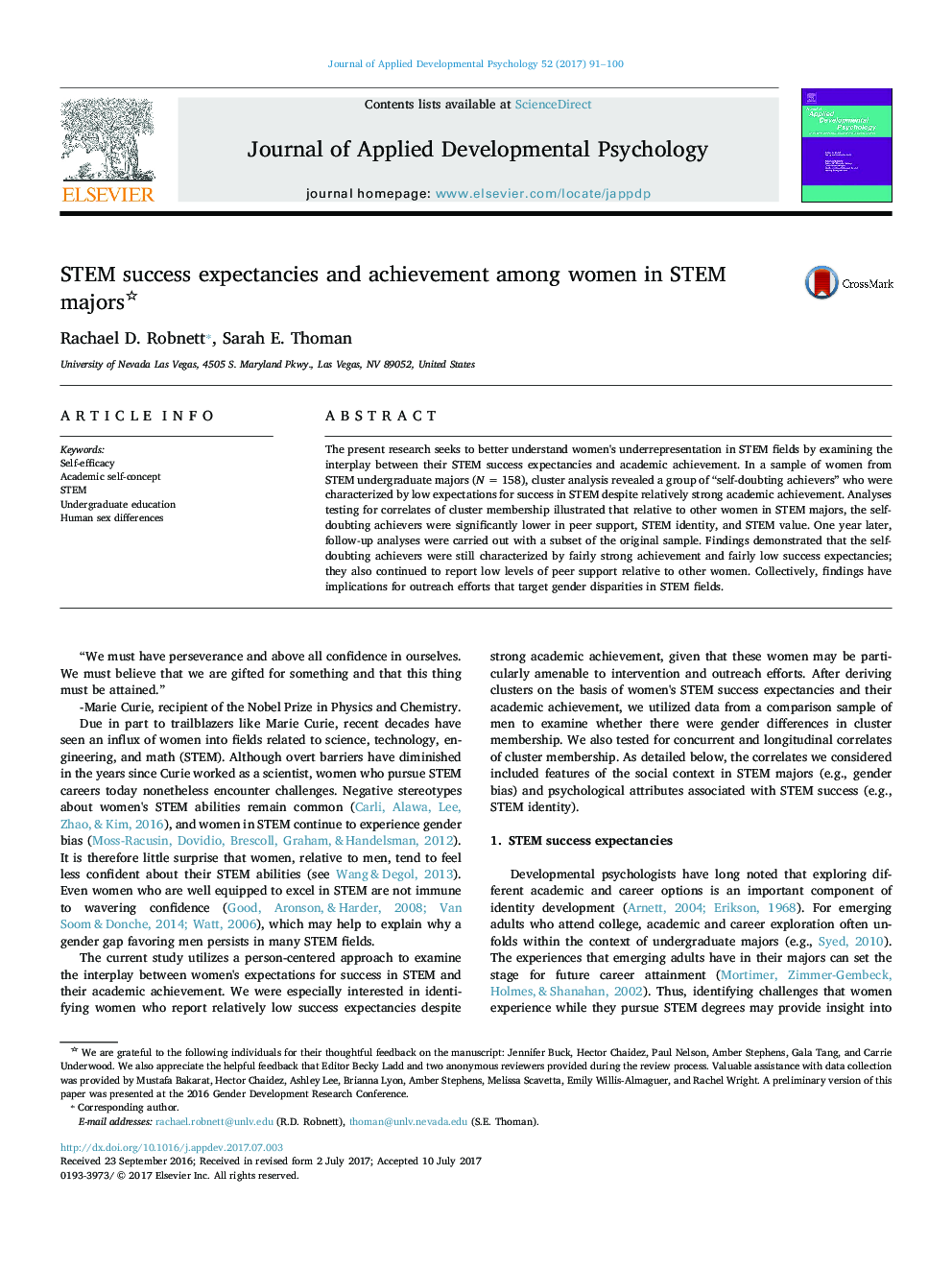| Article ID | Journal | Published Year | Pages | File Type |
|---|---|---|---|---|
| 4939141 | Journal of Applied Developmental Psychology | 2017 | 10 Pages |
Abstract
The present research seeks to better understand women's underrepresentation in STEM fields by examining the interplay between their STEM success expectancies and academic achievement. In a sample of women from STEM undergraduate majors (NÂ =Â 158), cluster analysis revealed a group of “self-doubting achievers” who were characterized by low expectations for success in STEM despite relatively strong academic achievement. Analyses testing for correlates of cluster membership illustrated that relative to other women in STEM majors, the self-doubting achievers were significantly lower in peer support, STEM identity, and STEM value. One year later, follow-up analyses were carried out with a subset of the original sample. Findings demonstrated that the self-doubting achievers were still characterized by fairly strong achievement and fairly low success expectancies; they also continued to report low levels of peer support relative to other women. Collectively, findings have implications for outreach efforts that target gender disparities in STEM fields.
Related Topics
Social Sciences and Humanities
Psychology
Applied Psychology
Authors
Rachael D. Robnett, Sarah E. Thoman,
